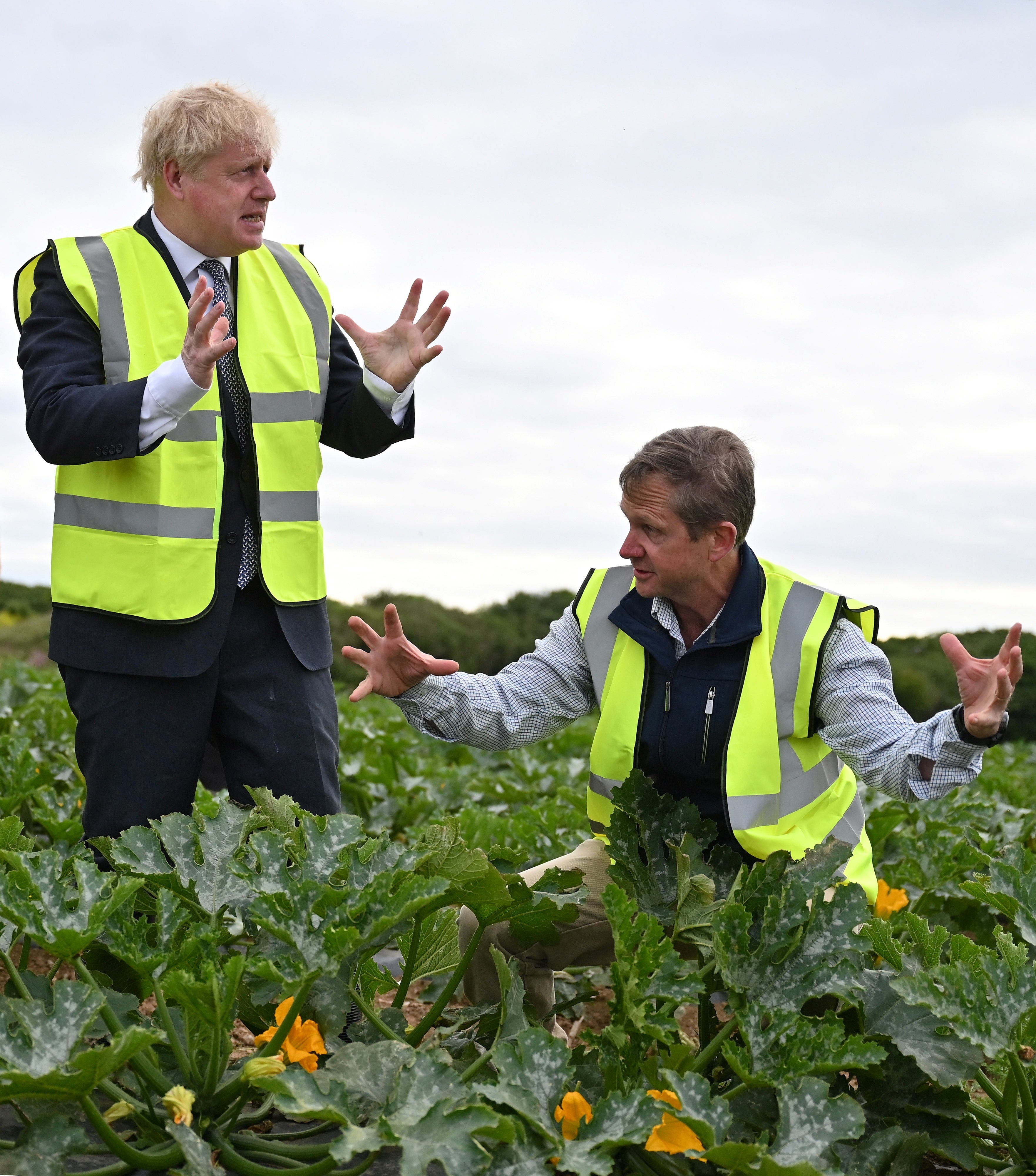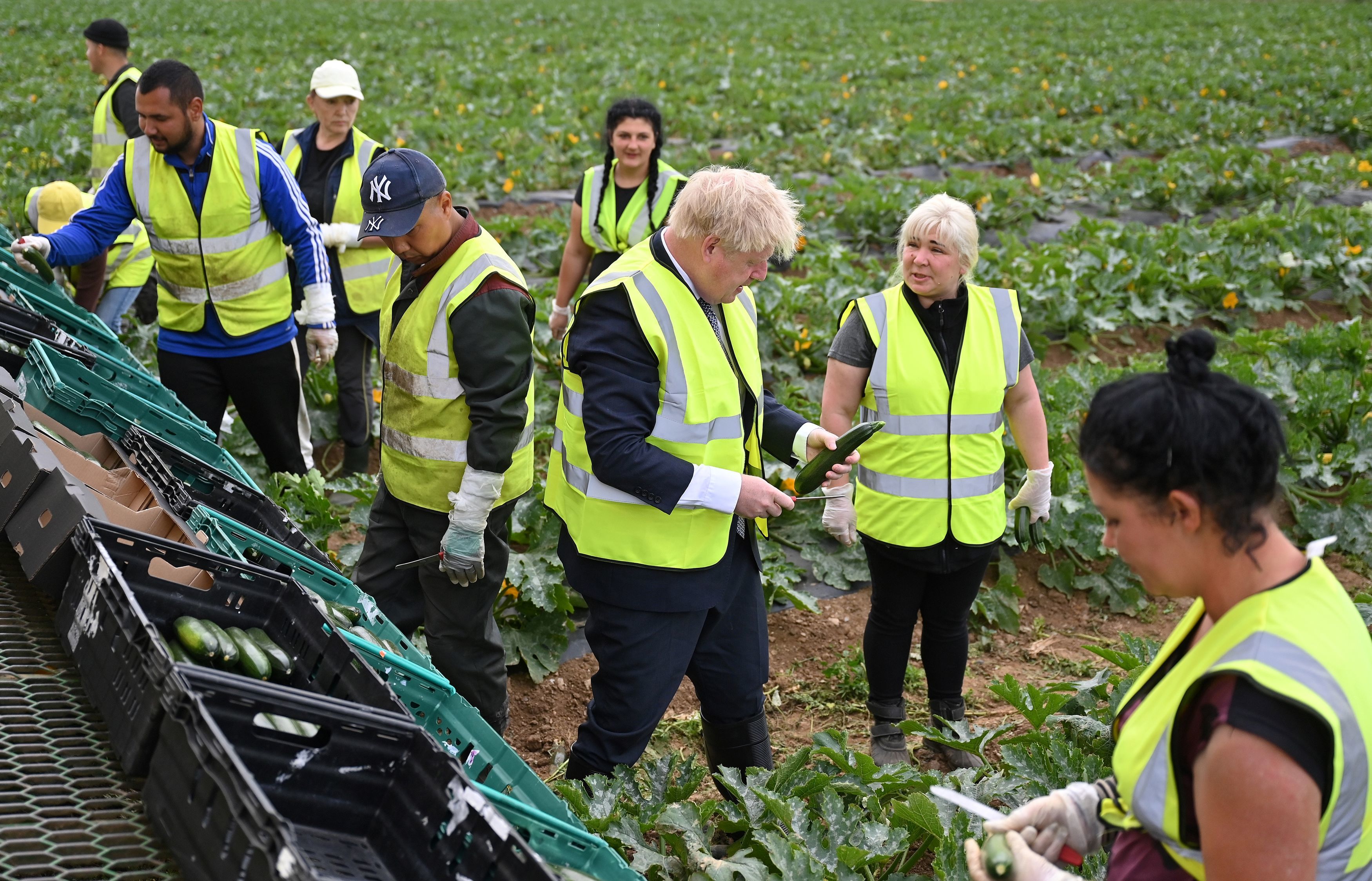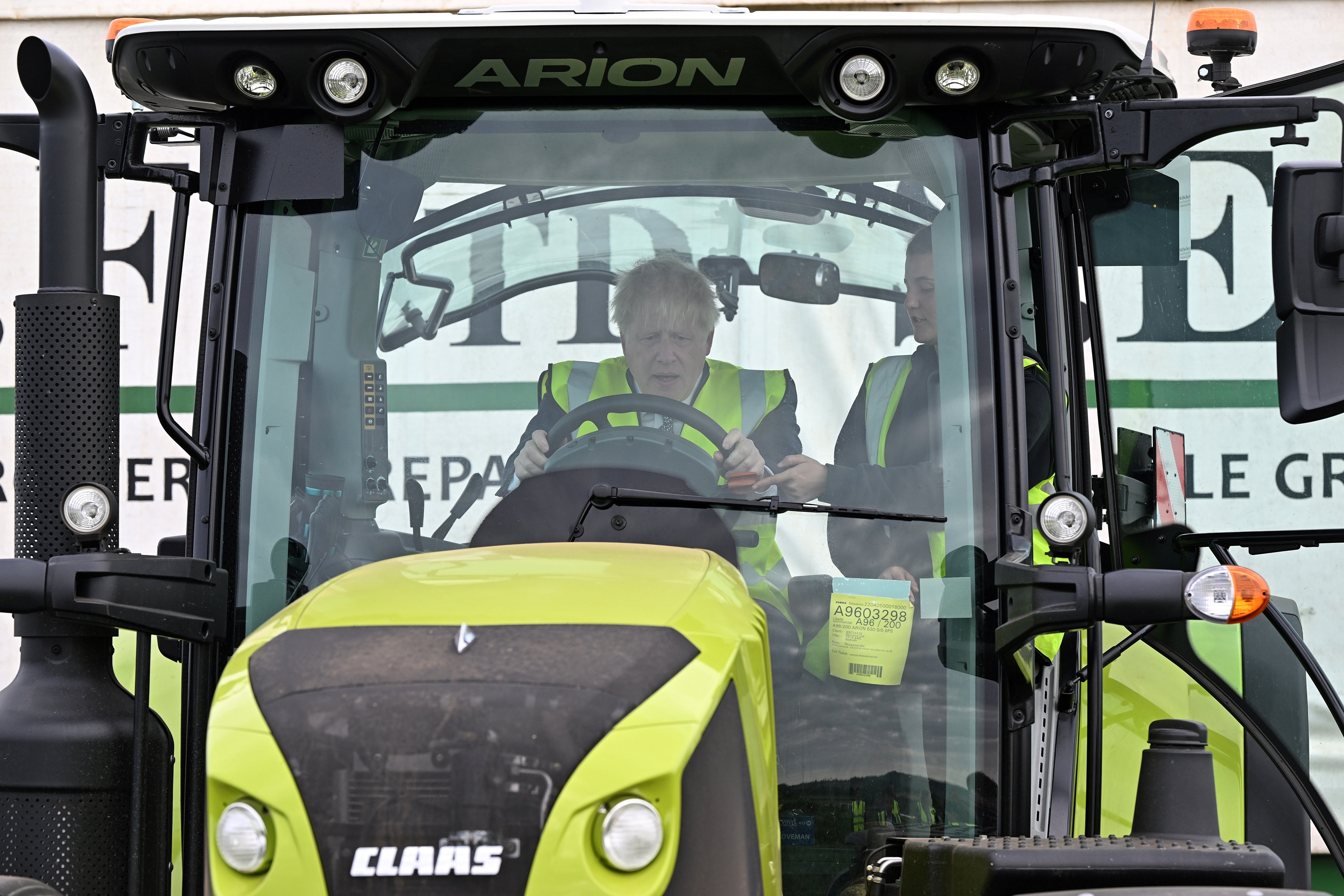What is the government’s food strategy and why is it under fire?
PM says plans will benefit British farmers but blueprint has come in for heavy criticism

The government has published its new food strategy which aims to tackle rising food costs and obesity levels.
The strategy sets out what the government will do to deliver “healthier, more sustainable and affordable diets for all”.
It follows the government-comissioned independent review of the food system known as the National Food Strategy, led by restauranteur Henry Dimbleby.

Boris Johnson pledged the blueprint, being launched in a white paper on Monday, will “back” British farmers.
Ministers say the plan will help strengthen the resilience of the nation’s supply chains and increase domestic production, so “we will grow and eat more of our own food”.
Mr Johnson said: “Our food strategy sets out a blueprint for how we will back farmers, boost British industry and help protect people against the impacts of future economic shocks by safeguarding our food security.”
One such initiative is for 50 per cent of public sector food spend to go on food produced locally or certified to higher standards, essentially reducing the distance between farm and fork.

The strategy also sets out plans to create a new professional body for the farming and growing industry, to boost training and develop clear career pathways, equipping people and businesses with the skills needed to run sustainable and profitable businesses.
However, the document has already received wide-spread criticism after a leaked version of the strategy, obtained by The Guardian, stated that the government had ignored many recommendations from Mr Dimbleby.
The Leon restaurant co-founder told The Guardian the document was “not a strategy”, saying: “It doesn’t set out a clear vision as to why we have the problems we have now and it doesn’t set out what needs to be done.”
For example, calls from teachers to expand free school meals and for a sugar and salt tax to tackle obesity were not included in the strategy, which has left headteachers and unions “deeply disappointed”.

The paper instead focuses more environmental issues such as creating new technologies which will help cattle produce less methane, and after being strongly advised to help consumers reform their meat-eating habits, ministers said they would “support progress on a wide range of issues, including alternative proteins”.
The strategy also reiterates a commitment to publish a land-use framework by 2023 that will work towards the alignment of agriculture and food production to the net-zero target and biodiversity targets listed under the Environment Act.
But for Kath Dalmeny, chief executive of farming group Sustain, it is not enough. She said: “In the face of multiple crises in the cost of living, rocketing obesity, climate change and nature loss, the government food strategy looks shamefully weak … This isn’t a strategy, it’s a feeble to-do list, that may or may not get ticked.”
Jim McMahon, Labour’s shadow secretary for environment, food and rural affairs said: “This is nothing more than a statement of vague intentions, not a concrete proposal to tackle the major issues facing our country. To call it a food strategy is bordering on the preposterous.”
Join our commenting forum
Join thought-provoking conversations, follow other Independent readers and see their replies
Comments


Bookmark popover
Removed from bookmarks